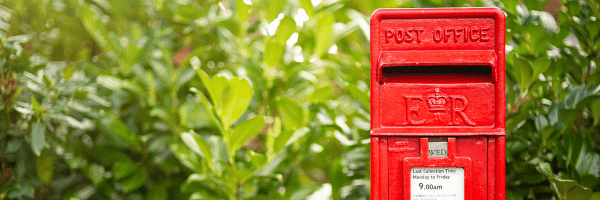After three years of losses, Royal Mail has reported a return to profit under its new owner, Czech billionaire Daniel Kretinsky.
Although the £12m profit (before redundancy costs) is relatively small compared to the £336m loss the previous year, it represents a significant turning point for a business that has been grappling with falling demand, increased costs, and reputational challenges.
Royal Mail’s journey offers plenty of insight into what it takes for a business to adapt and progress in difficult trading conditions. Here are six takeaways.
1. Focus on Growth Opportunities
Letter volumes continue to decline (down 4% in the past year), while parcel volumes are rising (up 6%). By concentrating investment and strategy on parcels — where customer demand and margins are stronger — Royal Mail is aligning itself with market realities.
Lesson: Review your revenue streams to spot areas where demand is increasing. Prioritise resources there, even if it means stepping back from parts of the business that once felt central.
2. Streamline the Way You Work
Royal Mail has already ended Saturday deliveries for second-class letters to cut costs. Its Universal Service Obligation (USO) requires six-day letter deliveries and weekday parcel deliveries.
However, the USO is under review, and Royal Mail has argued that reducing second-class post to alternate weekdays could save up to £300m annually — a move it claims would give it a “fighting chance.”
Lesson: Assess how your business operates. Are you spending time or money on tasks that drain resources but add little value? Small operational changes can lead to large savings.
3. Innovate Around Customer Needs
Royal Mail plans to introduce 3,500 solar-powered parcel post boxes across the UK. These will feature solar panels powering a digital drawer, enabling the posting of items up to shoebox size.
Through the Royal Mail app, customers will be able to use the service, request proof of posting, and track their parcels — making the process more convenient.
Lesson: Innovation can strengthen your sustainability credentials while better serving customer needs. It doesn’t always require advanced tech — even simple improvements can make customers’ lives easier.
4. Safeguard Brand and Trust
Despite foreign ownership, Royal Mail has kept its name, UK headquarters, and tax residency for at least five years. This was part of the takeover agreement, with the government retaining a “golden share” to veto certain changes. These safeguards help preserve continuity and public trust.
Lesson: During periods of change, maintain consistency in the areas your customers value most — whether that’s service levels, communication style, or product quality. Familiarity builds trust and loyalty.
5. Don’t Shy Away from Tough Decisions
Royal Mail has reduced headcount, endured strike action, and taken reputational hits. Leadership has had to make difficult, sometimes unpopular choices to get the business on a more sustainable path.
Lesson: Growth often requires hard calls, whether around staffing, pricing, or discontinuing unprofitable activities. Avoiding those decisions usually prolongs the pain.
6. Adapt to Long-Term Trends
The transition from letters to parcels reflects a broader societal shift — digital communication replacing paper. Royal Mail’s survival depends on embracing that reality rather than resisting it.
Lesson: Keep an eye on long-term industry trends. Is your business positioned to thrive in five or ten years’ time, or are you holding on to outdated models in decline?
Final Thoughts
Royal Mail’s modest profit is proof that even a 500-year-old organisation can adapt when required. Concentrating on growth areas, dropping what no longer works, innovating for customers, maintaining trust, making tough decisions, and keeping pace with long-term trends are all strategies that can help businesses survive and thrive.
If you’d like to explore how these lessons might apply to your own organisation — whether it’s controlling costs, reshaping services, or building customer loyalty — we’d be happy to talk it through.
Read more: https://www.bbc.co.uk/news/articles/cger3w129l0o









